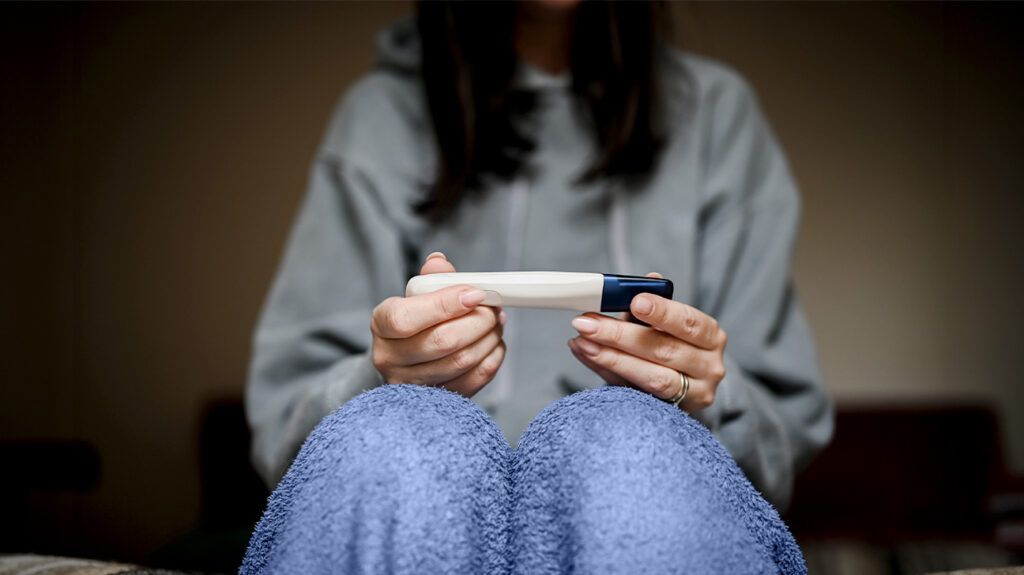People with tokophobia have a very intense fear of pregnancy or childbirth. Although there is no established definition or treatment, healthcare professionals can help people cope with tokophobia.
Tokophobia is a deep, overwhelming, and intense fear of childbirth. Both pregnant people and people who are not pregnant may have tokophobia.
Although many people may have fears and worries about pregnancy or childbirth, tokophobia is more severe. It may significantly affect a person’s well-being and quality of life.
Another name for tokophobia is tocophobia. Older names for tokophobia include maieusiophobia or parturiphobia.
This article discusses what tokophobia is, along with its symptoms and causes. It also outlines the prevalence of tokophobia, discusses PTSD and tokophobia, and explains how to treat and cope with tokophobia.
A note about sex and gender
Sex and gender exist on spectrums. This article will use the terms “male,” “female,” or both to refer to sex assigned at birth. Click here to learn more.

Tokophobia is an
Pregnant people may
Researchers believe tokophobia may be linked to increased cortisol levels during pregnancy. Cortisol is a hormone that a person’s body produces when under stress. High cortisol levels during pregnancy can affect both the pregnant individual and the development of the fetus.
Experts have not agreed on a definition of tokophobia. Some sources may refer to tokophobia as fear of childbirth (FOC). Some scientific research may use both terms — tokophobia and FOC — to describe the condition.
However, some may describe tokophobia as different from FOC.
They suggest that FOC is a typical spectrum of fearful thoughts and feelings about childbirth. A person with FOC may have low to high fears that affect their daily activities. People may mistake FOC for tokophobia, but scientists appear to consider tokophobia a distinct and rare specific mental health condition.
Most mental health professionals use the Diagnostic and Statistical Manual of Mental Disorders, 5th edition, text revision (DSM-5-TR) to diagnose mental health conditions. The DSM-5-TR
Tokophobia can also affect the partner of a person who is pregnant. However, there do not appear to be many scientific studies into tokophobia in lesbian and bisexual females or transgender people. Although tokophobia may affect males, few recent scientific studies look into this.
A pregnant person with tokophobia may have a primary or secondary type:
Primary
Primary tokophobia is when a nulliparous person feels an intense fear of childbirth. “Nulliparous” is the
Secondary
Secondary tokophobia is when a multiparous person who has experienced a traumatic childbirth feels an intense fear of giving birth again. “Multiparous” is the
People with tokophobia have an
Tokophobia may cause people to have severe psychological symptoms, traumatic stress, or negative emotions.
A
- difficulties in daily life
- negative expectations toward childbirth
- psychological changes to upcoming childbirth
People with tokophobia may
- feel isolation, guilt, or shame about their pregnancy
- take extreme care to avoid pregnancy
- experience problems with sexual arousal
- end a healthy pregnancy
- conceal their pregnancy
- experience relationship breakdowns
- be in denial about their pregnancy, or avoid scans or indications of pregnancy
They may also experience physical or psychological effects such as:
- sleeplessness
- nightmares
- stomachaches
- depression
- anxiety, which may lead to panic attacks
The causes of tokophobia
- being unable to trust healthcare staff or unfriendly staff
- being left alone during labor
- appearing foolish or silly
- having a lack of involvement in decision making
- experiencing trauma
The small
Other factors that may make a pregnant person more likely to have primary or secondary tokophobia include:
- having an anxious personality type
- previously having:
- a past traumatic birth or any traumatic experience in healthcare
- miscarriages
- a long duration of fertility challenges
- smoking
- having low social support
- having poor relationships with partners
A
However, researchers noted that people should interpret these estimates with caution. They concluded tokophobia is not yet clearly defined worldwide. This may mean different tokophobia research may not refer to the same condition.
Healthcare professionals may mistakenly diagnose a person with tokophobia after a traumatic birth.
The person may instead be experiencing post-traumatic stress disorder (PTSD) symptoms. PTSD is a mental health condition that some people may develop after experiencing a traumatic event.
Experts also believe tokophobia or FOC may make a pregnant person
Healthcare and mental health professionals
- Cognitive behavioral therapy (CBT): CBT is a therapy that aims to help change how an individual thinks and behaves.
- Interpersonal therapy: Interpersonal therapy focuses on relieving a person’s symptoms by improving how they relate to other people.
- Brief dynamic psychotherapy (BDT): BDT is a therapy that focuses on a person’s unconscious psychological processes.
However, there is currently
The following are answers to some questions people frequently ask about tokophobia.
Is tokophobia a mental health condition?
Healthcare professionals
Is there a cure for tokophobia?
There is currently
What is lockiophobia?
Lockiophobia is another
Tokophobia is an intense and overwhelming fear of pregnancy. It is more severe than typical anxiety and fear regarding childbirth.
There does not appear to be one established scientific definition of tokophobia.
Tokophobia may have significant symptoms and effects on well-being and quality of life. It may also have several complex causes. It can affect pregnant people as well as non-pregnant people.
No formal or specific tokophobia treatment guidelines exist. However, healthcare and mental health professionals can use several therapy methods to help a person cope with tokophobia.
